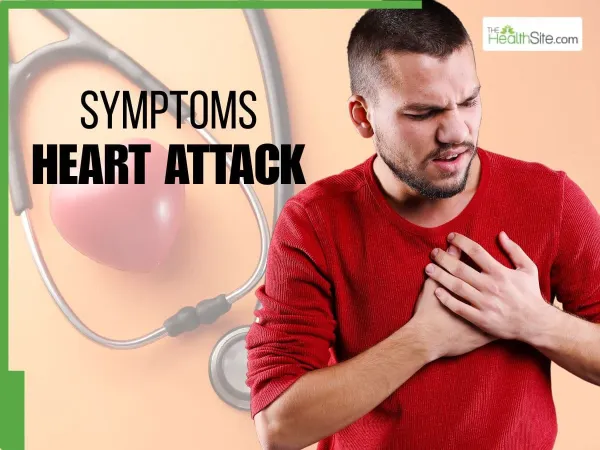
A heart attack often strikes without any signs and symptoms, however, the body may send certain indicators that can predict an impending heart attack.
Read the article to know more about it.
Heart Attack Symptoms: A heart attack is a medical term which is given to a serious health condition wherein the blood flow to the heart is suddenly interrupted due to the blockage created in the arteries by high cholesterol. This sudden disruption in the blood flow from the heart can lead to the death of cells - which is when it causes the heart to collapse. A heart attack often strikes without warning but the truth is, your body usually gives you subtle signs long before the emergency hits. Every minute counts when it comes to cardiac health, and recognising the early symptoms could be the key to saving your life or someone else's. Unfortunately, many of these signs are often ignored, mistaken for common issues like fatigue, stress, or indigestion.
With heart disease being one of the leading causes of death globally, it's crucial to stay informed. In this article, we will learn the top 8 early warning signs of a heart attack that you should never overlook.
8 Warning Symptoms of Heart Attack You Shouldn't Ignore
A wide number of people don't pay attention to the early signs or symptoms that can further lead to serious health complications. A heart attack can have subtle warning signs a week before, a month before the actual event.
Chest Discomfort or Pain
One of the most recognisable early signs of a heart problem is chest pain and discomfort, often known as angina. This situation feels like pressure on the chest, tightness, squeezing, or a burning sensation in the chest. It can occur during a physical activity or due to stress. In some cases, the pain can become serious and sometimes mistaken for indigestion or heartburn.
Shortness of Breath
This situation results in difficulty in breathing, especially while doing some hectic tasks or physical activity. This can signal the issues of heart failure or coronary artery disease. In this condition, the heart struggles to pump efficiently, leading to fluid backup in the lungs.
Fatigue or Tiredness
Feeling of Unusual or excessive tiredness even at the state of rest, this occurs due to less oxygen reaching the body tissues as the heart lacks pumping blood properly. This symptom is mostly overlooked, but if chronic fatigue persists even after a light workout, it's a serious condition of heart failure.
Irregular heartbeat or palpitations
This is a situation when the heart tends to beat very fast, or too slow, or skips beats may be showing symptoms of Arrhythmia. Chest discomfort, shortness of breath result in the conditions of ventricular tachycardia.
Swelling In The Ankles, legs, or feet
If the swelling in the legs, ankles or feet persists is due to the fluid retention caused by a weakened heart that cannot pump blood efficiently. This leads to the blood backing up in the veins. Resulting in heart failure.
Dizziness
These are the symptoms of low blood pressure or reduced blood flow to the brain, which can also lead to fainting, and it's due to aortic valve stenosis. This indicates serious heart conditions that need attention.
Cold Sweating
A completely non-ignorable situation that occurs suddenly without any hectic activity or physical exertion, and even without a high temperature. So this means you should be more careful in summer. These are often at the time you rest or at night.
Persistent pain in other body parts
Heart-related pain doesn't only occur in the chest. But also radiate through the left arm, left side back, neck or jaw or upper stomach. This type of pain is common in women and may be misunderstood as indigestion
Recognising these types of symptoms earlier can save a life. If you experience such signs, seek medical attention promptly. Early diagnosis and treatment are key to preventing serious complications.